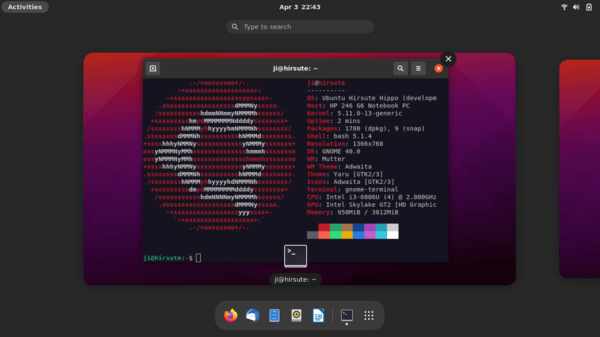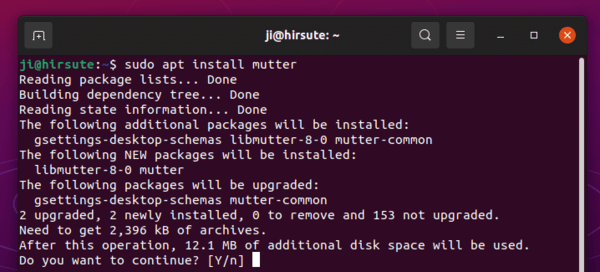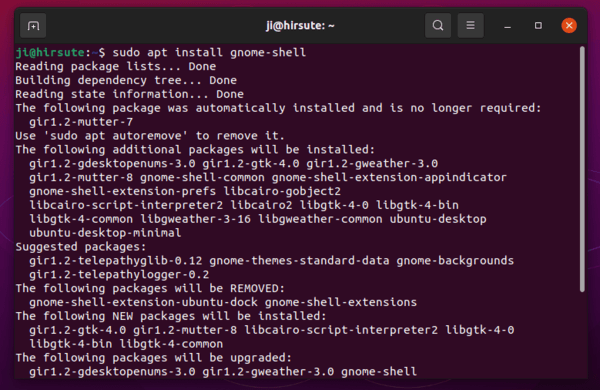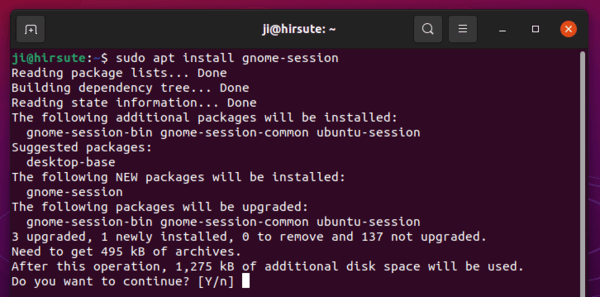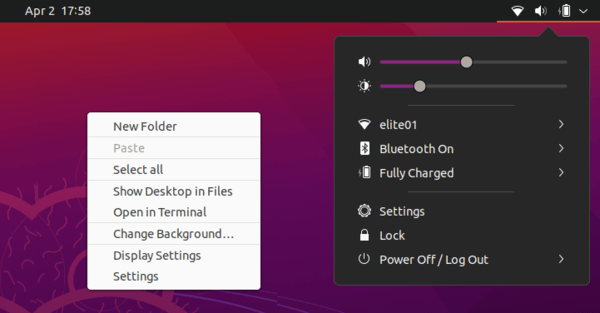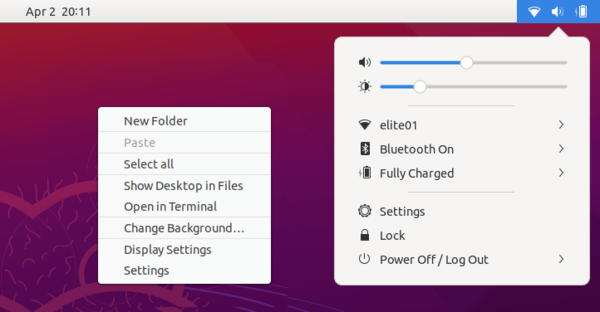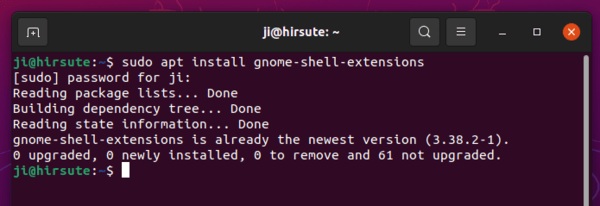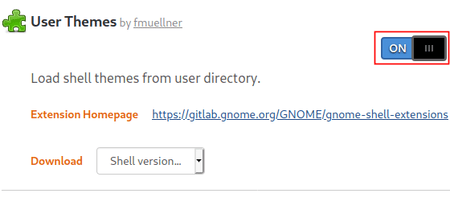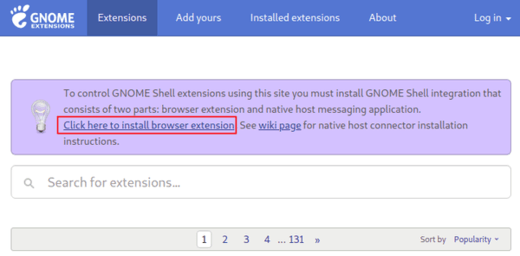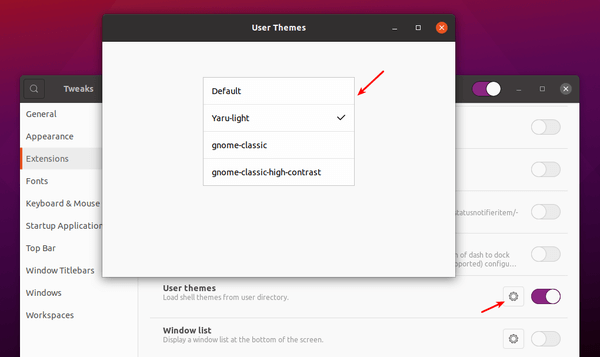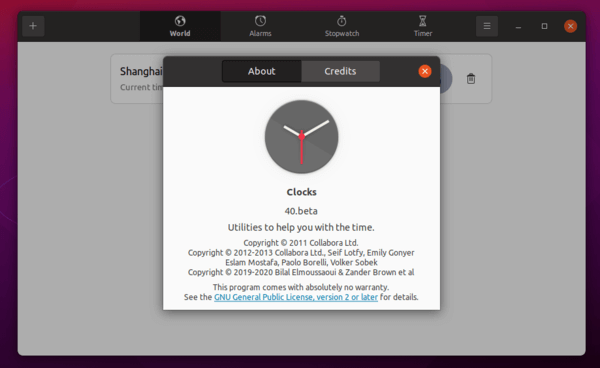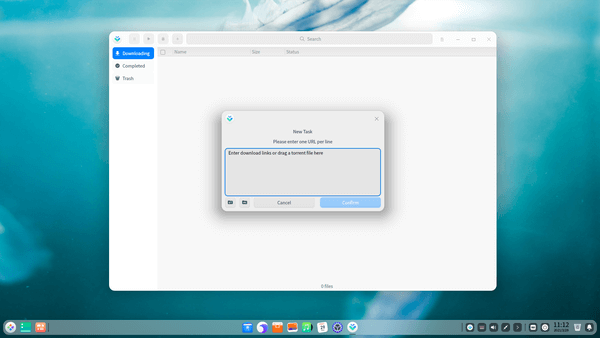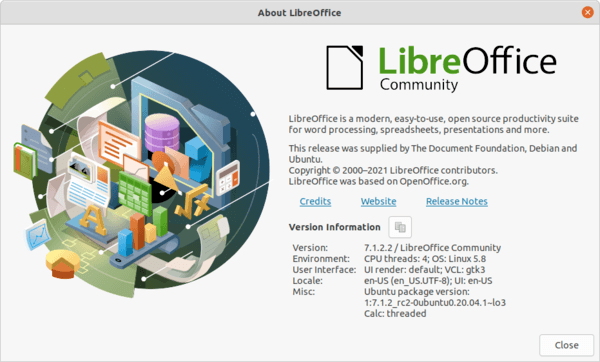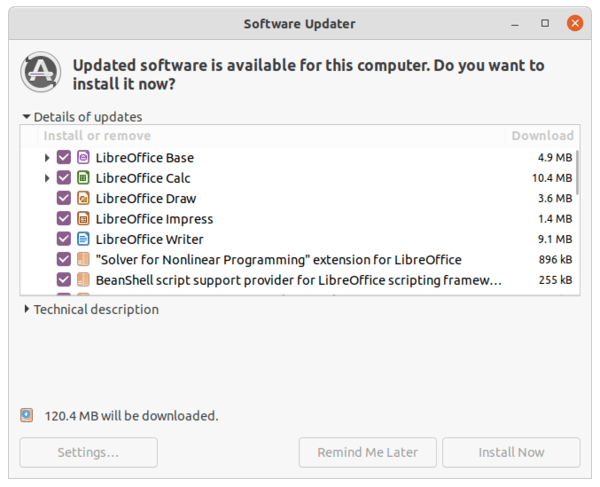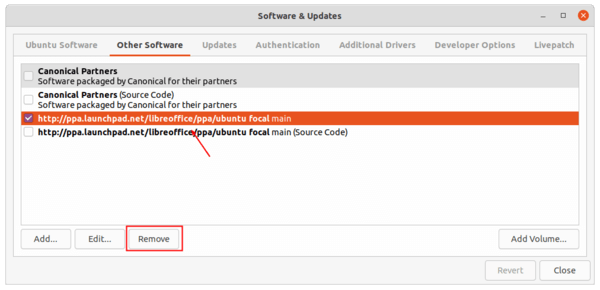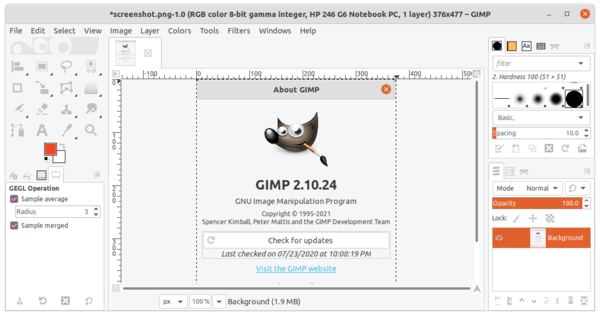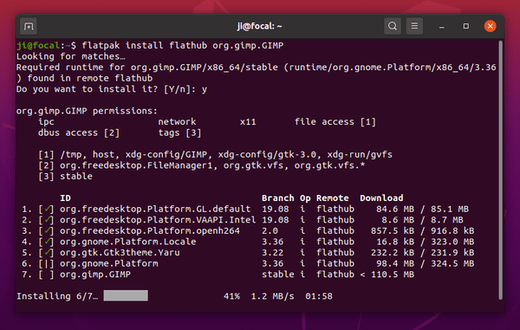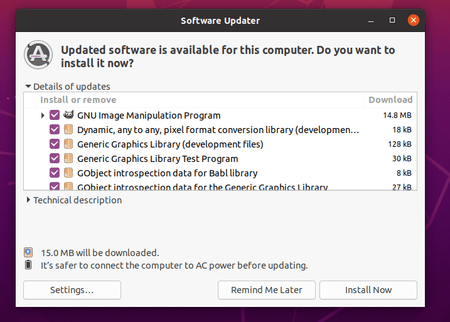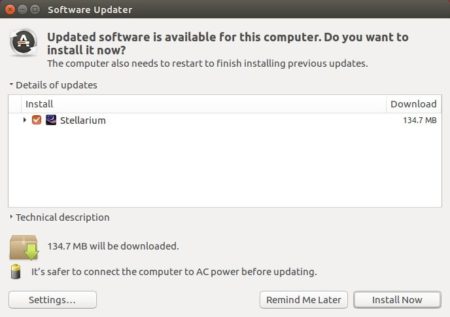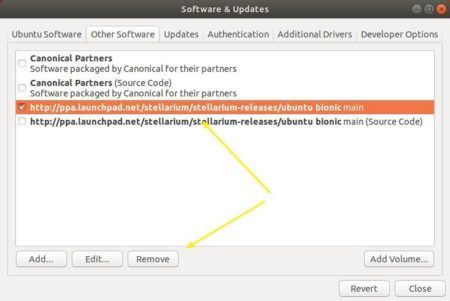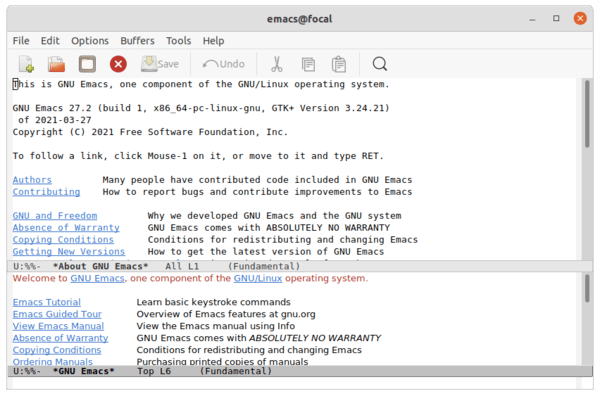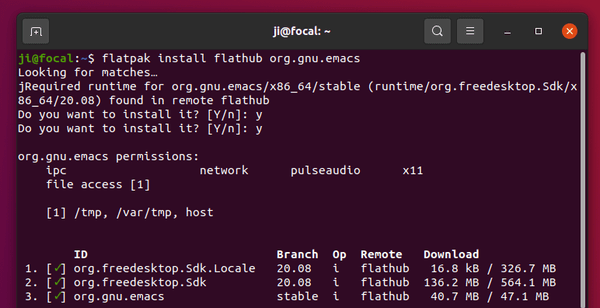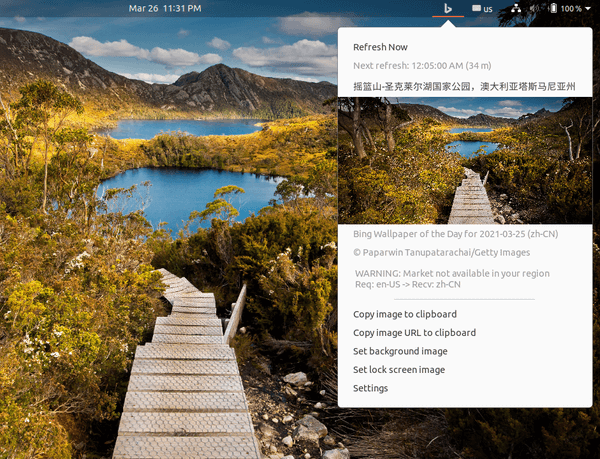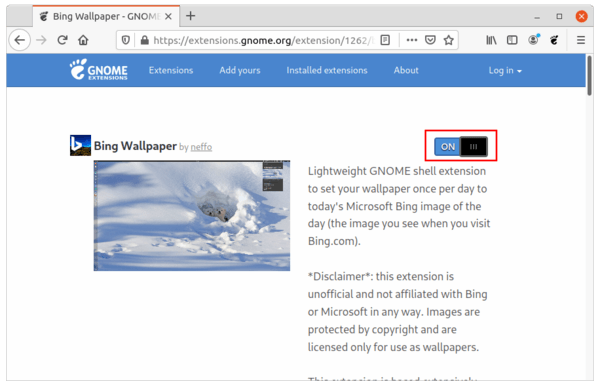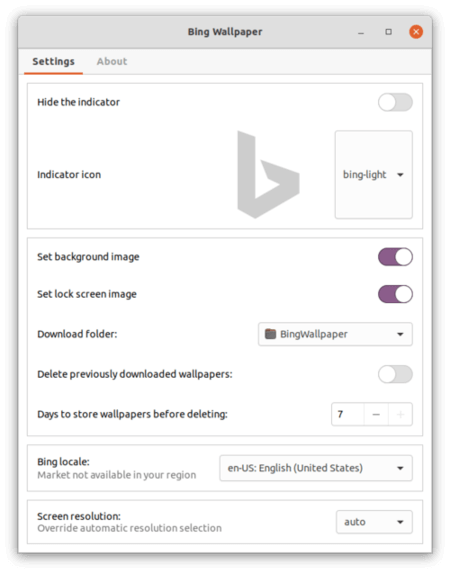![]()
CPUFetch is a simple command line tool, a bit similar to Neofetch, but for fetching CPU architecture in Linux, Windows, macOS, and Android.
The tool outputs the manufacturer logo (e.g., Intel, AMD) along with basic CPU info, including:
- CPU name.
- Micro-architecture.
- The semiconductor technology in nanometer (nm).
- Max frequency.
- Number of cores and threads.
- Advanced Vector Extensions (AVX)
- Fused-Multiply-Add (FMA)
- L1, L2, L3 cache sizes.
- Peak performance.
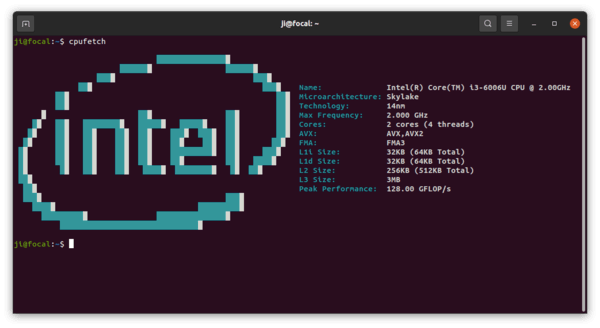
It supports custom colors and offers a few styles (themes). With it, you can easily take screenshot of the CPU information and share with your friends.
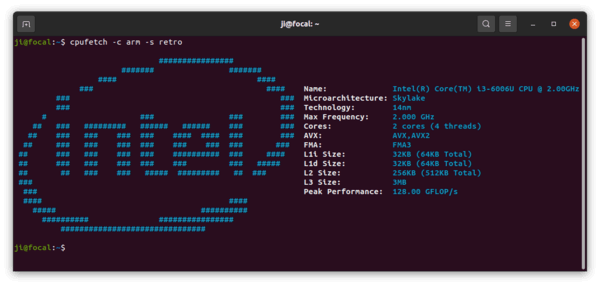
How to Install CPUFetch in Ubuntu:
CPUFetch so far do not offer an Ubuntu binary package. However, it’s easy to compile it in Linux.
1.) Firstly open terminal from system app launcher. When it opens, run command to clone the source:
git clone https://github.com/Dr-Noob/cpufetch
Install git via sudo apt install git command if you don’t have it.

2.) Then navigate to the source folder via cd command, and compile it via make:
cd cpufetch && make

3.) You are finally be able to run the tool via ./cpufetch command in this directory!
To be able to run via cpufetch command anywhere in terminal, copy the executable file to /usr/local/bin:
sudo mv ~/cpufetch/cpufetch /usr/local/bin/
Uninstall:
To remove the source folder, run command:
rm ~/cpufetch -rf
And remove the executable file via command:
sudo rm /usr/local/bin/cpufetch




